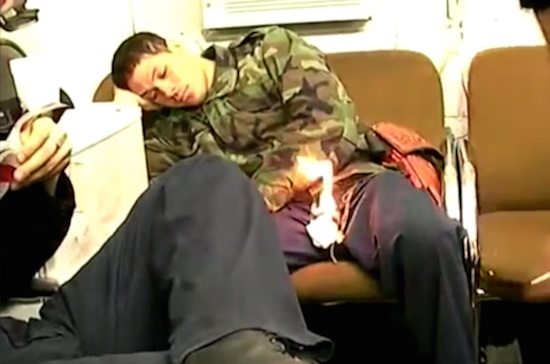One of the best pranks I’ve ever read about was the prank played on American anthropologist Napoleon Chagnon by a tribe of Yanomamo indians of the Amazon rainforest. I don’t recall if I read this story in his book titled, Yanomamö: The Fierce People (1968), or if it was in Steven Pinker’s Book titled, How the Mind Works (1997). Nevertheless, the story had me rolling.
While in the tribe’s company, Chagnon attempted to acquire genealogical data on the members, going so far as to ask them their “true names”. Chagnon, however was unaware that it was taboo to ask the names of their prominent people. His inquiry was really a violation of their prestige, and so they decided to act upon it. Chagnon gathered the tribesmembers and asked each one to whisper the name of the person and the person’s relatives in his ear.
He wrote, “They reacted to this in a brilliant but devastating manner: They invented false names for everybody in the village and systematically learned them, freely revealing to me the ‘true’ identities of everyone. I smugly thought I had cracked the system and enthusiastically constructed elaborate genealogies over a period of some five months. They enjoyed watching me learn their names
Everyone would then insist that I repeat the name aloud, roaring in hysterical laughter as I clumsily pronounced the name, sometimes laughing until tears streamed down their faces. The ‘named’ person would usually react with annoyance and hiss some untranslatable epithet at me, which served to reassure me that I had the ‘true’ name.
My anthropological bubble was burst when I visited a village about 10 hours’ walk to the southwest some five months after I had begun collecting genealogies on the Bisaasi-teri. I was chatting with the local headman of this village and happened to casually drop the name of the wife of the Bisaasi-teri headman. A stunned silence followed, and then a villagewide roar of uncontrollable laughter, choking, gasping, and howling followed. It seems that I thought the Bisaasi-teri headman was married to a woman named “hairy cunt.” It also seems that the Bisaasi-teri headman was called ‘long dong’ and his brother ‘eagle shit.’ The Bisaasi-teri headman had a son called “asshole” and a daughter called “fart breath.” Blood welled in my temples as I realized I had nothing to show but nonsense for my 5 months of hard labor.
Pinker posits that humor is universal, whether it’s in the bush or in the city. Scatological fare is the best. Low brow over high brow is in. He states, “Most of the worlds’ wit is more Animal House than the Algonquin Round Table.” Everyone loves poop jokes. But aside from infantile humor, the profound idea to share here is that communities are built through humor and man feels connected through ‘put-downs’. Everyone can be ridiculed and pranked; from Hollywood movie-stars, to politicians, professors and your brother in arms.
Yes, pranks can be seen in the context of bullying, or a form of harassment, but pranks can also be used to bring a person into a group or to bring the existing group closer. This can be observed in the movie Apocalypto, filmed by director Mel Gibson. Stopping short of total humiliation is the way to go; a good prank seems to be something that brings people together. Pranks have been studied by psychologists for years and they’ve found that it acts a sort of social glue.
If a prank is done well, the group grows closer but if done poorly or perceived as hurtful by the one being tricked then all bets are off. Everyone should have a sense of humor but selecting your victim should be done wisely. A good prank takes some intuition and patience to execute once it’s set up. Pranks can ameliorate the tensions that exist between members. Humor is the enemy of pomp and decorum. Joking let’s people be less uptight.
Pranks and jokes in general help team members learn to trust (or distrust for that matter!) each member further. Any cop, fireman or warfighter will tell you joking helps improve their collective energy, loyalty and relationship skills towards other members of their team. A genuine connection from this emotional bond can be built if the person the joke is played upon feels the members are laughing with him, and not wholly at him. Some kinds of joking can be vicious and should never be played on someone you want watching your back. What is an emotional bond? Essentially it is ‘seeing the heart’ of another person and having them see yours.
Good leaders and good teams should always put people first before their own vanity. Getting to be known as the funniest jokester at the expense of someone who could prove to be a good unit member is not the way to go. Teams should be emotionally competent and get a good read on each other. Did the other member get so ‘butt-sore’ that they are now nursing a really bad grudge? Woe be it to you if he comes after you.
Get to know them first before you attempt to crush their soul. Good leaders and good team members, for that matter, can acknowledge mistakes and help everyone recover from a joke gone bad. Plant good seeds and build good teams. Remember that playing pranks on your teammates can build your team up or tear them down.


